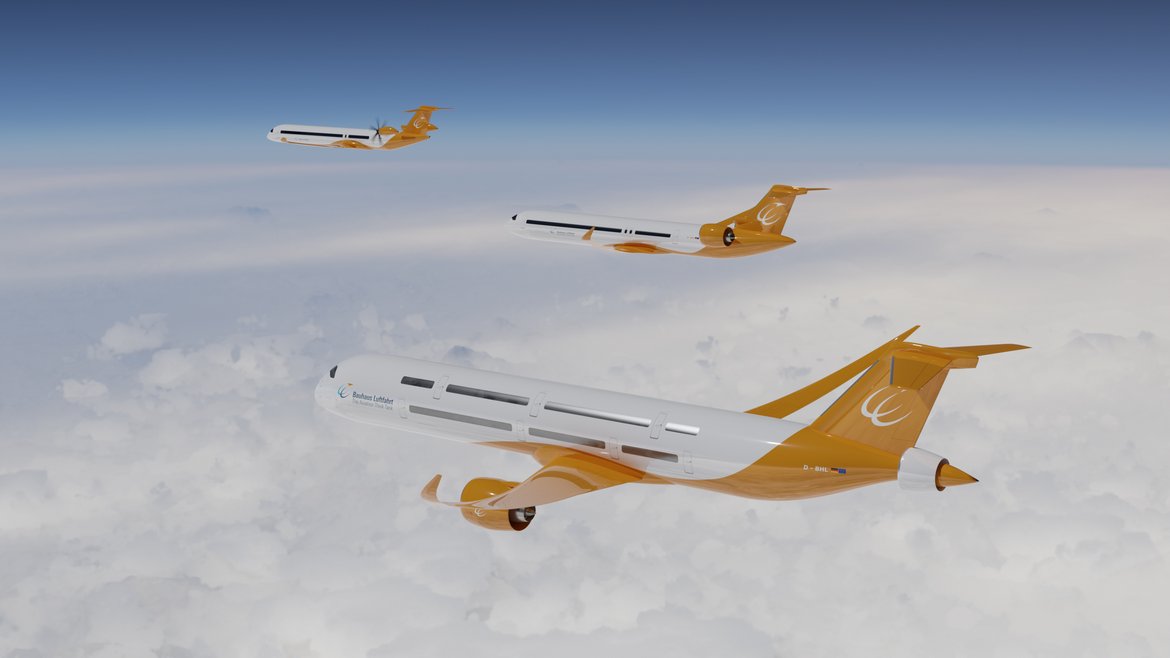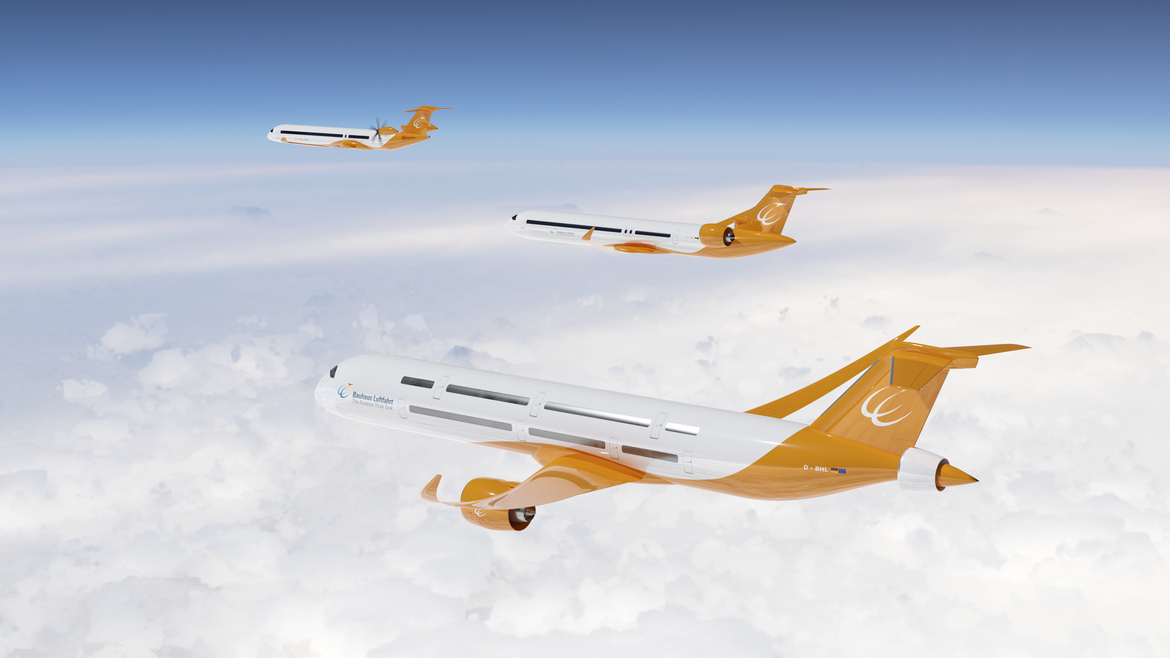„Targeting climate-neutral aviation - how radical is the path?" This question was posed by renowned aviation experts from science and industry at the 5th Bauhaus Luftfahrt Symposium on 12 and 13 March 2024 in Berlin, including Florian Allroggen (MIT), Marianne Berg (Boeing), Nicole Dreyer-Langlet (Airbus), Xavier Lagardère (Lufthansa Innovation Hub) and Lars Wagner (MTU). Scientists from Bauhaus Luftfahrt as well as experts from a wide range of fields provided insights into new technological and operational approaches and discussed their potential for the long-term development of aviation.
"With the clear goal of making aviation climate-neutral, we are facing the biggest technological but also operational changes in aviation since the introduction of jet propulsion. We can only master this path if we pool our expertise and strengths," explains Prof. Dr. Mirko Hornung, Executive Director of Bauhaus Luftfahrt. At the symposium, renowned experts from science and the aviation industry discussed and demonstrated that a parallel development of alternative energies (sustainable aviation fuels and hydrogen), new aircraft technologies and changes in the operation of the air transport system are necessary in order to achieve the ambitious goal of climate-neutral aviation.
Central statements from experts of Bauhaus Luftfahrt:
What radical technologies will we see?
New and radical technologies in future aircraft concepts and propulsion systems will be necessary on the way to climate-neutral air transport. Revolutionary solutions in propulsion systems for all aircraft classes in use today are required to make a significant contribution to reducing climate impact - solutions that improve efficiency and avoid "non-CO2" effects. "As battery-based energy and propulsion solutions are severely limited by the specific energy of batteries, gas turbine technology remains the backbone of modern propulsion for large aircraft," explains Dr. Arne Seitz, Coordinator Novel Propulsion Concepts & Hydrogen Aviation.
However, radical heat engines and hydrogen in combination with advanced fuel cells can provide the key to significant emission reduction potential. "Integrating all of these technologies into pioneering overall concepts will result in commercial aircraft that are both significantly more efficient and use energy in a climate-friendly way," explains Dr. Jochen Kaiser, Head of Visionary Aircraft Concepts. Advanced materials and manufacturing processes also enable faster and more environmentally friendly production of the next generation of aircraft and accelerate the renewal of the aircraft fleet.
What role will synthetic fuels and hydrogen play?
"Green hydrogen plays a key role in climate-neutral aviation, as the future fuel needs of aviation require more sustainable and scalable solutions than the biofuels currently in use," explains Dr. Valentin Batteiger, Coordinator Future Aviation Fuels. Power-to-Liquid (PtL) fuels, which are synthesised from hydrogen and CO2, are seen as a future basic option for producing large quantities of sustainable aviation fuels. Until market-ready technologies for CO2 capture from ambient air are developed, the sustainable availability of CO2 represents a significant limitation. Hybrid fuel pathways that convert advanced biomass using green hydrogen lend themselves to efficient utilisation of biogenic feedstocks.
Finally, the profound advantages of liquid hydrogen (LH2) compared to a PtL base case motivate the development of hydrogen aircraft. "Nevertheless, drop-in fuels remain an excellent option for significantly reducing the climate impact of aviation, at least until the middle of the century," explains Dr. Andreas Sizmann, Head of Future Technologies and Ecology of Aviation.
How can politics and innovation work together to achieve climate-neutral air transport?
Politics, technological and financial innovations must work hand in hand to achieve climate-neutral air transport. The levers required to decarbonise air traffic are currently immature or only available to a limited extent. "Credible financial commitments and targets from policy makers and aircraft manufacturers will reduce uncertainty and stimulate innovation and investment," explains Ram Kamath, Coordinator Transition to Climate Neutrality.
Incentives for research and development for highly efficient aircraft and for technologies such as direct air capture must initially be supported by subsidies. On the other hand, sustainable fuels require a combination of quotas and subsidies when they are introduced to the market. Greater clarity regarding the long-term plans for future aircraft programmes and the demand for sustainable fuels are basic prerequisites for being supported by "green", sustainability-related loans. "Clear and long-term guidelines from politicians and commitments from aircraft manufacturers solve the chicken-and-egg problem and create the necessary framework conditions to actively lead the transition of aviation to climate neutrality," explains Dr. Kay Plötner, Head of Economics and Transportation.
How to motivate passengers to adopt sustainable behavior?
It is well known that changes in consumer behaviour can only be achieved if there is proactive communication, a clear awareness of the effects of consumption is created and attractive alternatives are offered. This also applies to aviation and its passengers. "In order to reduce the gap between attitude and behaviour, common efforts are needed from various stakeholders - including policy makers, the aviation industry, non-governmental organisations and academia," explains Mengying Fu, Research Associate in Passenger & Market Development.

Communications Manager
silvia.hendricks[at]bauhaus-luftfahrt.net
+49 89 3074-849-78

